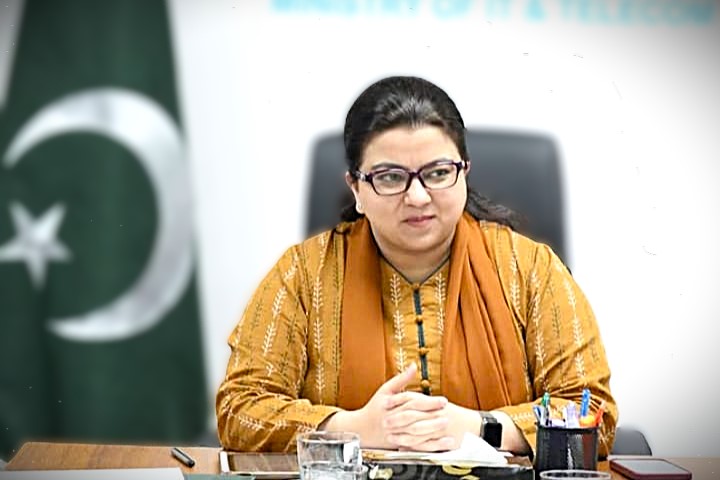Pakistan to Boost Internet Speed with New Submarine Cables – August 2025
Pakistan installs three new submarine cables to improve internet speed, connectivity, and digital growth. Minister Shaza Fatima Khawaja unveils plan.
Raja Awais Ali
8/24/20252 min read
Pakistan’s Digital Leap: Minister’s Vision for Enhanced Internet Speed and Connectivity
On August 24, 2025, Federal Minister for Information Technology and Telecommunication, Shaza Fatima Khawaja, announced a landmark initiative to strengthen Pakistan’s digital infrastructure. The government has begun the installation of three new submarine internet cables, a move expected to significantly improve internet speed, enhance international connectivity, and boost the country’s digital economy.
Minister’s Statement: A Commitment to Digital Advancement
Highlighting the importance of technology in modern economies, Minister Khawaja stated:
“In today’s digital era, no country can progress without strong digital infrastructure. These cables will not only provide faster internet but also unlock new opportunities for innovation, investment, and digital inclusion.”
This initiative supports Pakistan’s Vision 2030, which aims to position the country as a regional digital hub.
Current Internet Landscape in Pakistan
Despite recent progress, Pakistan’s internet performance remains below global standards:
Fixed Broadband → Ranked 141st out of 158 countries with a median download speed of 15.6 Mbps.
Mobile Internet → Ranked 100th out of 111 countries with a median download speed of 20.61 Mbps.
City Speeds (2025):
Lahore: 24.38 Mbps
Karachi: 20.97 Mbps
Pakistan offers some of the world’s cheapest internet services (≈ $0.12 per Mbps), but affordability often comes at the cost of speed and reliability.
Global Comparison
Pakistan’s internet speed still lags far behind global leaders. Countries like Singapore and the UAE enjoy average broadband speeds of over 300 Mbps, ranking among the top 10 globally. In the region, India averages around 75 Mbps, while Bangladesh stands at about 35 Mbps, both significantly ahead of Pakistan. By contrast, Pakistan’s fixed broadband speed is just 15.6 Mbps, placing it at 141st out of 158 countries in the Speedtest Global Index 2025
Pakistan not only trails global leaders but also lags behind its neighbors India and Bangladesh.
Service Provider Performance (PTA Survey, 2025 Q1)
Zong → Best in mobile download speeds (17.3 Mbps).
Jazz → Leads in upload speeds (6.5 Mbps).
Ufone & Telenor → Weak performance in both categories.
This disparity highlights the urgent need for stronger telecom infrastructure.
Challenges Affecting Internet Speeds
Infrastructure Gaps – Rural areas still lack access to high-speed internet.
Bandwidth Constraints – Limited international bandwidth slows connections.
Regulatory Barriers – Anti-competitive practices hinder fair growth.
The Role of Submarine Cables in Digital Transformation
The installation of three new submarine cables—including the 2Africa Submarine Cable System, one of the world’s largest—will:
Dramatically increase bandwidth capacity (up to 180 Tbps).
Reduce latency, ensuring faster response times.
Improve network reliability, minimizing outages caused by cable cuts.
Digital Growth in Pakistan (2025):
200+ million mobile subscribers nationwide.
10 million new mobile users added this year.
25% rise in internet usage within two years.
8 million women accessed the internet for the first time.
Looking Ahead: A Digital Pakistan
Faster, more reliable internet will transform multiple sectors:
Freelancing & Remote Work → Pakistan already ranks among the top 5 freelancing countries; better connectivity will boost productivity.
Education → Online learning will reach underserved rural areas.
E-Commerce & Startups → Businesses can scale globally with stable connectivity.
Healthcare → Telemedicine will expand access to quality healthcare.
Digital Inclusion → Millions of women and rural citizens will gain new opportunities.
Conclusion
Pakistan’s investment in submarine cables is more than a technological upgrade—it is a strategic leap forward. By improving speed, affordability, and accessibility, the country is on track to strengthen its role in the global digital economy.
While challenges remain, this initiative signals a promising future—a faster, stronger, and more inclusive Digital Pakistan by 2030.

